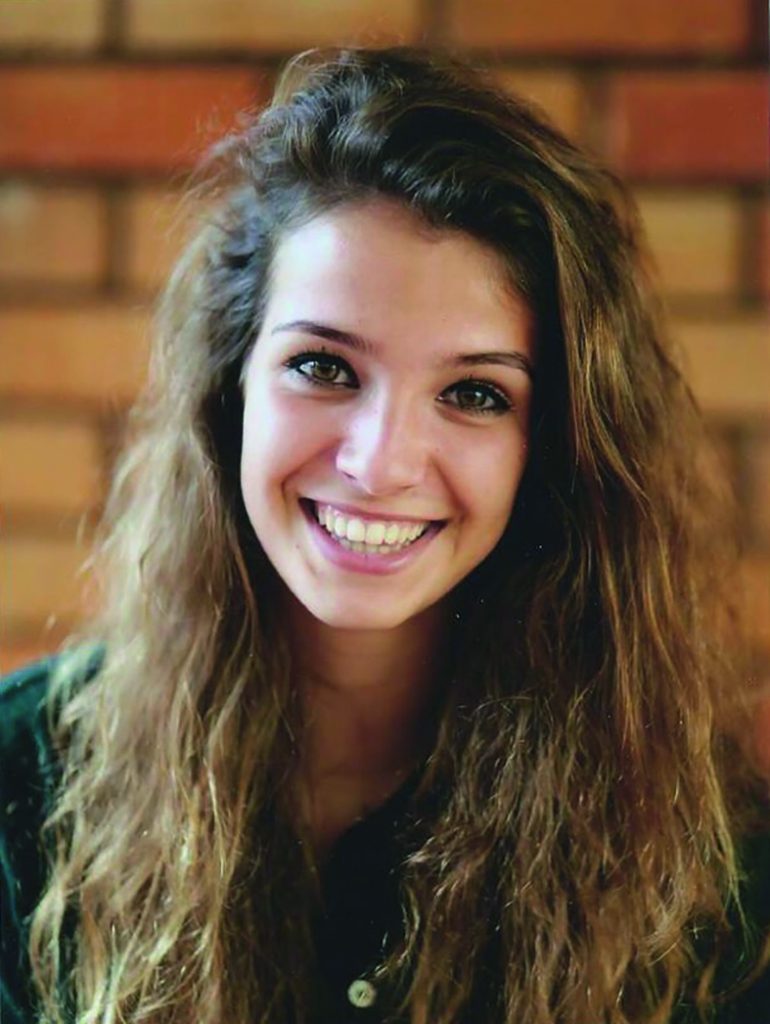Kristian Schmidt has previously served as ambassador/EU head of delegation to Uganda and has held the post in Myanmar since 2017. Isabelle has accompanied her father on a number of his postings.
Life as the child of a diplomat can be isolating and full of uncertainty, putting a strain on friendships and forcing young people to adapt quickly to cultural environments and languages.
How many different countries have you lived in?
The US, Belgium, Uganda, Denmark and France.
Where did you grow up?
I was born in New York. We moved to Belgium after a year or so and lived there for 13 years. Then we were off to Uganda for four years, where I graduated from high school.
What is the most exciting place you’ve ever been to?
The most exciting place I’ve ever been to must be Myanmar. My father works there now and I visited for two weeks last December. Myanmar is wonderful – it embodies a mix of culture and modernity.
How do you interpret diplomacy?
From what I’ve seen on numerous occasions, a diplomat is one who has the adept ability to hold a conversation on all political topics. I’ve had the opportunity to converse with numerous diplomats and politicians, and I’ve always found our talks productive. I hold diplomacy in high regard and I value its importance in maintaining good governance and world order. I’ve often been able to see my dad working and I can appreciate why he entered the foreign service.
Do you feel privileged to have been taught diplomatic values from an early age?
I definitely do. It has allowed me to see things all around the world not many other people around me have. I’ve heard unique stories and learned about different cultures through first-hand experience, things you cannot learn from reading a book.
What did you do post-graduation?
I graduated in 2016 and then I went on to attend Sorø Academy for six months. My uncle went there and he absolutely loved it there. One of the many things he was enraptured by at the school was the library, which contains books many centuries old. I felt very inspired to enrol there. I returned to Uganda for six months after Sorø to volunteer as a medic.
I’ve always been passionate about medicine and I was planning on creating a sustainable medical NGO on the outskirts of Kampala. Following those six months, I moved to Marseilles, where I tutored students in English for a year. Lastly, I’ve enrolled at the University of Montpellier to study medicine. I’m in the first year of my bachelor’s degree.
What goals did you have for your NGO?
We actually managed to establish an on-site clinic where people could be medically checked for 1,000 Ugandan shillings, which is the equivalent of 20 pence in pounds sterling. After the initial consultation fee we would then offer free treatment for whatever our patients were suffering from. With additional time and resources, I am positive that we could have created long-standing effects on local communities in dire need of medical attention and potentially have partnered up with larger organisations, such as the Red Cross and Doctors Without Borders.
Have your experiences sharpened your global awareness?
Unquestionably so. Uganda has totally changed my way of seeing not only the African continent, but also the rest of the world. Unfortunately, many former European classmates of mine have huge misconceptions of what it is like to live in an African country. We do not ride to school on elephants, nor do we live in huts! It’s still developing and things might take a little longer there, but Uganda is a wonderful place to live.
What are your hobbies and interests?
I have a penchant for music, animals and travelling. I’m very interested in medicine. I absolutely love immersing myself in a compelling book once in a while, and I occasionally write myself: mostly social observations and cultural experiences. Other than that, I quite like motorbikes and I’ve recently purchased my own. A friend and I are planning a trip across Europe on my motorbike this summer, which I am greatly looking forward to.
What is your favourite book?
That has to be ‘A Thousand Splendid Suns’ by Khalid Hosseini. I read that when I was quite young and it has always stuck with me. I’ve also just finished Franz Kafka’s ‘The Metamorphosis’– another great book.
Any future aspirations?
I have many ambitions. As a candidate to join L’Armée de terre, I fundamentally believe in helping others. If anything, discovering our differences across countries and continents will only make us realise that we’re all quite similar.














